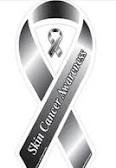Women more likely to survive melanoma

South Africa has the highest rate of skin cancer in the world after Australia, and is common in both men and women.
The analysis of four European studies found that by almost every measure, women can expect a better outcome than men following an early stage melanoma diagnosis. The difference in outcome is rooted in basic differences in gender biology, the researchers suggest.
“The 30% advantage applies to survival,” said study author Dr Arjen Joosse, from the department of public health at Erasmus University Medical Centre in Rotterdam, the Netherlands. “It also applies to having a metastasis [spread]: women have a 30% lower chance to experience a metastasis to the lymph nodes and to other organs.”
Joosse noted that the fact that women tend to fare better than men following a melanoma diagnosis is a well-established observation based on prior research. However, the reasons behind the prognosis gap have remained elusive. And the new research found an association between gender and melanoma survival, not a cause-and-effect.
The study
Joosse and his team analysed data on nearly 2700 melanoma patients from four different melanoma treatment trials conducted in Europe.
All of the male and female melanoma patients had been diagnosed with either stage 1 (early) or stage 2 (localised) cancer. During and following treatment, all the patients were tracked for disease remission, relapse, spread and death.
The result: male melanoma patients were found to have worse disease characteristics at diagnosis and worse disease progression.
On the latter measure, female patients were found to have a “highly consistent and independent advantage” over men in terms of overall survival, both before and after menopause.
It is not that the initial tumour starts out worse in men than women, the authors stressed. Rather it is something gender-related that causes the cancer to unfold in a more deadly way in men. In theory, oestrogen level differences could play a role, although the team noted that the evidence so far suggests the hormone does not have much effect on melanoma. Other possibilities include gender differences with respect to vitamin D metabolism, immune system function, male testosterone levels and what is known as “oxidative stress” in the body.
“I believe that the message here is that if you’re a man, think like a woman,” said Dr Vernon Sondak, chair of the department of cutaneous oncology at the Moffitt Cancer Centre in Florida in the United States in an accompanying editorial. “And that’s because most of us feel that a big part of this has to do with the fact that women are a little more likely to be paying attention to their skin and to notice something on their skin, and most importantly, to do something about it right away. And with melanoma, early detection is key,” he stressed.
“So, I think in large part this is a behavioural issue, not a genetic issue,” Sondak added. “However, that’s not the whole issue. It is also the case that what we now call melanoma, one disease, may actually be many different diseases caused by many different things. And with that there may be genetic differences, all else being equal, in how men and women get these different diseases in the first place. This study didn’t look at that. But that’s another important aspect to consider.”
Source: HealthDay News
Author

Health-e News is South Africa's dedicated health news service and home to OurHealth citizen journalism. Follow us on Twitter @HealtheNews
Republish this article
This work is licensed under a Creative Commons Attribution-NoDerivatives 4.0 International License.
Unless otherwise noted, you can republish our articles for free under a Creative Commons license. Here’s what you need to know:
You have to credit Health-e News. In the byline, we prefer “Author Name, Publication.” At the top of the text of your story, include a line that reads: “This story was originally published by Health-e News.” You must link the word “Health-e News” to the original URL of the story.
You must include all of the links from our story, including our newsletter sign up link.
If you use canonical metadata, please use the Health-e News URL. For more information about canonical metadata, click here.
You can’t edit our material, except to reflect relative changes in time, location and editorial style. (For example, “yesterday” can be changed to “last week”)
You have no rights to sell, license, syndicate, or otherwise represent yourself as the authorized owner of our material to any third parties. This means that you cannot actively publish or submit our work for syndication to third party platforms or apps like Apple News or Google News. Health-e News understands that publishers cannot fully control when certain third parties automatically summarise or crawl content from publishers’ own sites.
You can’t republish our material wholesale, or automatically; you need to select stories to be republished individually.
If you share republished stories on social media, we’d appreciate being tagged in your posts. You can find us on Twitter @HealthENews, Instagram @healthenews, and Facebook Health-e News Service.
You can grab HTML code for our stories easily. Click on the Creative Commons logo on our stories. You’ll find it with the other share buttons.
If you have any other questions, contact info@health-e.org.za.
Women more likely to survive melanoma
by Health-e News, Health-e News
May 14, 2012
MOST READ
Cough syrup recall: What is diethylene glycol and what happens when you drink it?
Hunger and mental health: study looks at how families cope with food insecurity
Patients wait months for surgery at Leratong hospital as non-payment shuts down theatres
Social media for sex education: South African teens explain how it would help them
EDITOR'S PICKS
Related


Malnutrition in South Africa: how one community wants resources to be spent

